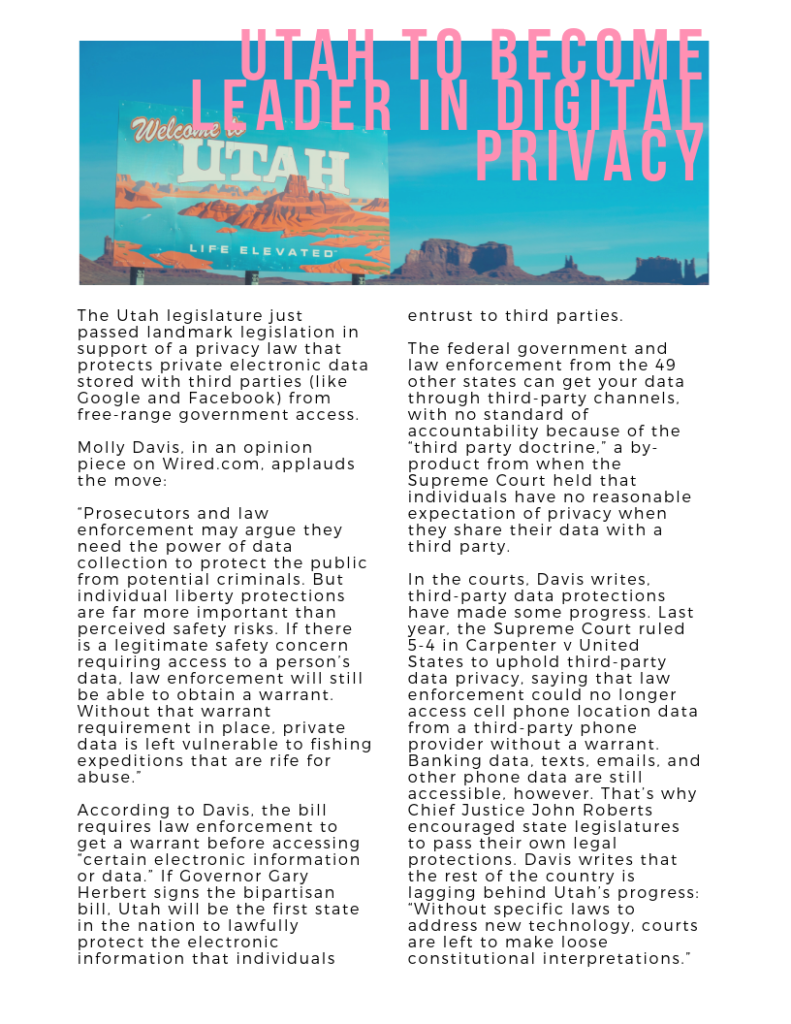Utah to Become Leader in Digital Privacy

The Utah legislature just passed landmark legislation in support of a privacy law that protects private electronic data stored with third parties (like Google and Facebook) from free-range government access.
Molly Davis, in an opinion piece on Wired.com, applauds the move:
“Prosecutors and law enforcement may argue they need the power of data collection to protect the public from potential criminals. But individual liberty protections are far more important than perceived safety risks. If there is a legitimate safety concern requiring access to a person’s data, law enforcement will still be able to obtain a warrant. Without that warrant requirement in place, private data is left vulnerable to fishing expeditions that are rife for abuse.”
According to Davis, the bill requires law enforcement to get a warrant before accessing “certain electronic information or data.” If Governor Gary Herbert signs the bipartisan bill, Utah will be the first state in the nation to lawfully protect the electronic information that individuals entrust to third parties.
The federal government and law enforcement from the 49 other states can get your data through third-party channels, with no standard of accountability because of the “third party doctrine,” a by-product from when the Supreme Court held that individuals have no reasonable expectation of privacy when they share their data with a third party.
In the courts, Davis writes, third-party data protections have made some progress. Last year, the Supreme Court ruled 5-4 in Carpenter v United States to uphold third-party data privacy, saying that law enforcement could no longer access cell phone location data from a third-party phone provider without a warrant. Banking data, texts, emails, and other phone data are still accessible, however. That’s why Chief Justice John Roberts encouraged state legislatures to pass their own legal protections. Davis writes that the rest of the country is lagging behind Utah’s progress: “Without specific laws to address new technology, courts are left to make loose constitutional interpretations.”
Photo by Joshua T.

Download the PDF version of the article.
[ls_content_block id=”896″]
[ls_content_block id=”664″]
About the Author
 Information Governance2022.07.18The IGP Exam: New and Improved
Information Governance2022.07.18The IGP Exam: New and Improved Analytics2021.02.01What’s Next in Information Governance? Continuous Audit and Analytics
Analytics2021.02.01What’s Next in Information Governance? Continuous Audit and Analytics Information Governance2020.11.19Information Governance: Alignment with Business is Essential
Information Governance2020.11.19Information Governance: Alignment with Business is Essential Information2020.09.11New Podcast Series Focuses on the Careers of Women Leaders in Information Governance
Information2020.09.11New Podcast Series Focuses on the Careers of Women Leaders in Information Governance